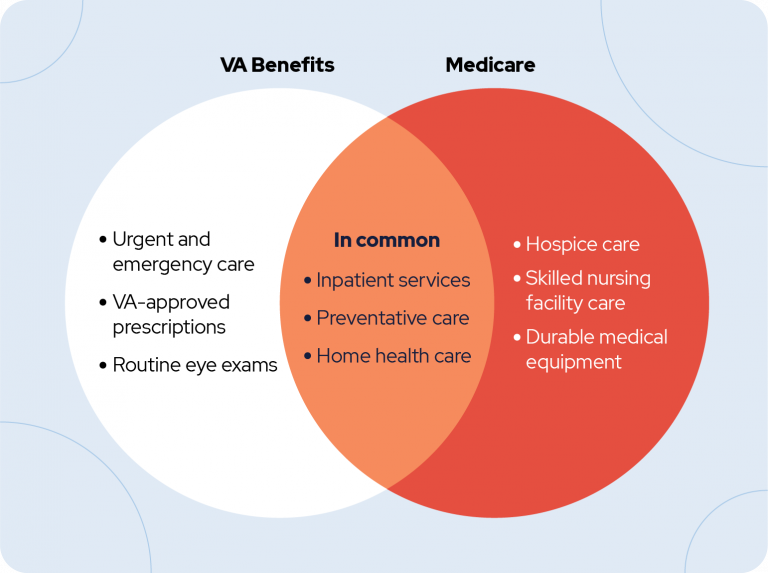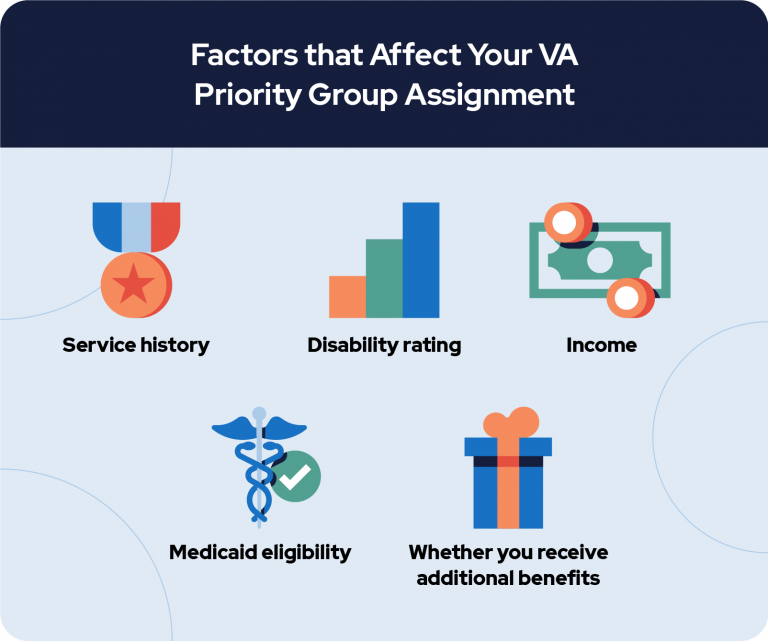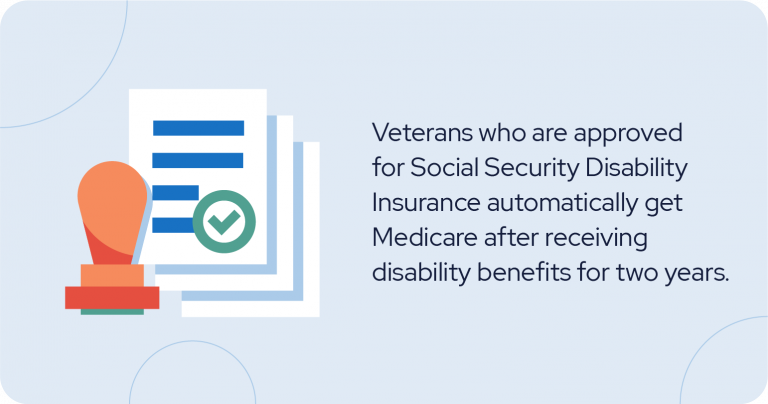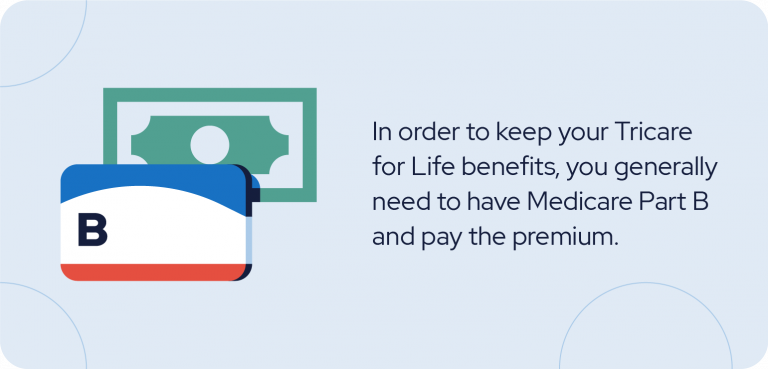Can the Va Bill My Primary Care Insurance
To support the health care needs of about 19 million veterans in the United States, the government has a number of health insurance programs available, such as VA benefits, Medicare and Tricare for Life.
Veterans can benefit from both VA health care coverage and Medicare if they meet the eligibility requirements. About half of veterans who have VA benefits also have Medicare coverage, expanding their options for where and how they receive care.
This guide covers whether you should enroll in VA benefits and Medicare, how VA benefits work with Medicare, and how Tricare for Life works with Medicare.
Should I Enroll in Medicare if I Have VA Coverage?

The U.S. Department of Veterans Affairs recommends that you enroll in Medicare when you turn 65 even if you have VA coverage. This will ensure that you have additional coverage options when seeking care outside of VA facilities. This may be beneficial for those who live relatively far from VA facilities.
Additionally, having Medicare provides backup options in case there's not enough VA funding in the future to cover care for all veterans. If funding for VA health care is reduced, those in lower priority groups may be at risk of losing their VA health care benefits.
You should also enroll in Medicare Part B when you become eligible. Delaying enrollment might result in a permanent late enrollment penalty, which increases the longer you delay signing up.
VA Health Benefits and Eligibility
According to the Department of Veterans Affairs, "You may be eligible for VA health care benefits if you served in the active military, naval, or air service and didn't receive a dishonorable discharge."
Those who enrolled in uniform services after September 7, 1980, or started active duty after October 16, 1981, must have served for two years or completed their active-duty period unless they meet certain exceptions.
These exceptions include:
- Discharge due to an active duty-related disability
- Early discharge
- Serving before September 7, 1980
If you were or still are in the military reserves or National Guard, you can qualify for VA benefits if you completed your active-duty period as required by a federal order.
Eligible veterans can apply for VA benefits in one of five ways.
- Fill out an online application on your VA.gov account
- Call 877-222-8387 Monday to Friday from 8 a.m. to 8 p.m. Eastern Time
- Fill out and mailing the application form
- Apply in person at a local VA medical center or clinic
- Enlist an accredited representative to help apply for VA benefits
After submitting your application, you'll receive a letter in less than a week stating whether your application was approved.
Approved enrollees will be assigned to one of the eight priority groups, which determines your potential health care costs — if there are any — and when you'll be signed up for health care benefits.
Factors that determine your priority group include:
- Your service history
- Your disability rating
- Your income
- Your eligibility for Medicaid
- Whether you receive additional benefits
Veterans with service-related disabilities are put in the highest priority group, whereas veterans with higher incomes who don't have any service-related disabilities are generally put into lower priority groups.
To use VA benefits, veterans must receive care from a VA-authorized or pre-authorized non-VA facility.
VA benefits cover a range of services, including:
- Inpatient hospital services
- Preventive care
- Home health care
- Emergency care services
- Mental health services
Some veterans may qualify for additional benefits such as dental and vision coverage.
Medicare Coverage and Eligibility
Medicare eligibility requirements apply to veterans the same way they do other enrollees. Medicare is available to veterans over the age of 65 or under 65 if they have certain disabilities.
You'll automatically be enrolled in Medicare Parts A and B if you receive Social Security or Railroad Retirement Board (RRB) benefits for at least four months before your 65th birthday.
If you're not automatically enrolled in Medicare and you delay signing up for Part B, you may have to pay higher monthly premiums.
Did you know
If you cancel Medicare Part B after getting it, you won't be able to reinstate your coverage until January of the following year.
Medicare coverage for Parts A and B includes:
- Inpatient care
- Outpatient health care services
- Home health care
- Medically necessary services
- Preventative services
Questions About Medicare's Open-Enrollment?
December 7 is the deadline for changing your Medicare Advantage or Prescription Drug plan. Find out if you're paying too much for too little coverage by speaking with our Medicare experts.
Additional Medicare Coverage Options for Veterans
You can consider alternative or additional Medicare plans if you want to increase your coverage.
Alternative coverage options include:
- Medigap
- Medigap plans can be added on to Original Medicare to help cover a portion of the out-of-pocket costs not covered under Original Medicare.
- Medicare Advantage
- Known as Part C, Medicare Advantage plans offer the same coverage as Original Medicare and may include additional benefits such as drug coverage.
- Medicare Part D
- Signing up for a drug prescription plan allows veterans to get covered prescriptions at local pharmacies instead of through the VA mail-order service. There's no penalty for delaying enrollment in Medicare Part D.
Did you know
Veterans with VA benefits who decide to sign up for Medicare can also get either a Medigap policy or a Medicare Advantage plan, but not both.
How Do VA Benefits and Medicare Work Together?

VA benefits and Medicare are separate plans that don't overlap in coverage. Enrolling in Medicare does not affect VA benefits and vice versa.
Every time you receive care, you need to decide which benefits to use. You would use your Veteran Health Identification Card when accessing care at VA facilities and your Medicare card at other facilities.
Coverage for Veterans With Medicare and VA Benefits
If you have both Medicare and VA health benefits, it expands your coverage in terms of where you can access services.
VA benefits cover services at VA-authorized or non-VA facilities with pre-authorization, whereas Medicare helps cover services at non-VA facilities.
You can access VA care at over 1,200 care locations across the United States, including:
- VA medical centers
- VA community-based outpatient clinics
- Vet centers
- VA community living centers or other assisted living facilities
Consider factors such as budget, convenience and the type of care you need when deciding whether to go to a VA or non-VA facility. The chart below compares the advantages and disadvantages of the two.
VA Facilities vs. Non-VA Facilities
| VA Facilities | Non-VA Facilities | |
|---|---|---|
| Pros |
|
|
| Cons |
|
|
If the VA pre-authorizes services at a non-VA location, then Medicare may pay for other services you accessed at the facility.
Veterans with Disabilities and Medicare

Since veterans with disabilities may qualify for Supplemental Security Income (SSI) or Social Security Disability Insurance (SSDI), you may also be eligible for Medicare based on disabilities under SSDI.
Did you know?
You can receive Social Security disability benefits as well as veteran disability compensation as long as you meet the eligibility requirements for both programs.
Qualifying disabilities differ between the VA and Medicare. In order to receive disability benefits through the VA, applicants must have a disabling condition that was caused by or worsened because of active duty. Veterans who were discharged may not be eligible for disability benefits.
On the other hand, to qualify for SSI and SSDI, the disability doesn't have to be service-related, but it must render you unable to do substantial work and must last or be expected to last at least a year. Additionally, your discharge status isn't taken into account.
There are two cases in which you can get expedited processing for your SSI or SSDI applications.
- If you receive a 100 percent permanent and total disability rating from the VA
- If you became disabled during active duty on or after October 1, 2001
Tricare for Life Plans and Medicare

Veterans who are eligible for Tricare and have Original Medicare can be automatically enrolled in Tricare for Life (TFL), a program that provides "wrap-around" Medicare coverage.
There aren't any enrollment fees, but you generally need to keep Medicare Part B and pay the Part B premium in order to retain your TFL benefits.
If you have group health plan coverage from your employer, you should sign up for Medicare Part B during a special enrollment period in order to get TFL coverage when your group health plan coverage ends.
For services covered by both TFL and Medicare, you won't have any out-of-pocket costs, unless you've maxed out your Medicare benefits. In that case, you'll have to pay the TFL deductible and cost shares.
For services covered by only one of the programs, you may have to pay the program deductible and a percentage of the costs.
Tricare is the secondary payer to Medicare if you access services at a Medicare-participating, non-participating or opt-out provider in the United States and U.S. territories, and the first payer elsewhere.
Did you know?
The cost of care at VA providers for TFL beneficiaries is higher because the VA can't bill Medicare. Tricare can pay only up to 20 percent of the allowed amount, and you'll have to cover the rest of the costs.
FAQs: VA Benefits and Medicare
Common questions about VA benefits and Medicare are related to how the programs work with each other. Below are the answers to some frequently asked questions.
Do I have to pay for Medicare if I have VA benefits?
Having VA benefits does not affect Medicare costs. You can qualify for premium-free Medicare Part A coverage, but you'll likely have to pay premiums or a monthly fee for your other Medicare coverage depending on your plan.
Additional Veteran Health Care Programs
Other health care programs for veterans exist.
- Veterans Benefits Administration
- This page from VA.gov has a collection of resources for veterans, including a list of benefits programs and guides on buying homes, getting pensions and applying for employment.
- Warrior Care
- This page from the Department of Defense provides guides and lists programs that aim to support wounded, ill and injured veterans. It also features resources for military caregivers.
- CHAMPVA Guide
- CHAMPVA is a health care cost-sharing program for the eligible spouse or child of a veteran with disabilities or a veteran who has passed away. The CHAMPVA guide includes the eligibility requirements, how CHAMPVA affects Medicare, how to apply and how to receive care with CHAMPVA.
- VA Disability Compensation
- This page from VA.gov provides information on how veteran disability compensation works for those who got sick or injured or whose medical condition worsened while they were on active duty. It explains how to file for claims and outlines the compensation rates and important dates.
To get the most out of your health care insurance, getting Medicare in addition to VA benefits will help you cover services at both VA and non-VA facilities. Veterans with qualifying disabilities can also apply for SSDI and get Medicare after receiving disability benefits for two years.
Last Modified: September 9, 2021
10 Cited Research Articles
- TRICARE. (2021, January). TRICARE For Life Handbook. Retrieved from https://tricare.mil/-/media/Files/TRICARE/Publications/Handbooks/TFL_HBK.pdf?la=en&hash=5B2A99B3203B233D320A46A5662D59744721920A68591933408553D483BC8305
- Inderstrodt, J. and Wadsworth S. M. (2020, May 28). Comparing VA and Non-VA Medical Centers. Retrieved from https://www.cnas.org/publications/reports/comparing-va-and-non-va-medical-centers
- Kelly, J., Sergent, J. & Slack, D. (2019, February 7). Death rates, bedsores, ER wait times: Where every VA hospital lags or leads other medical care. Retrieved from https://www.usatoday.com/in-depth/news/investigations/2019/02/07/where-every-va-hospital-lags-leads-other-care/2511739002/
- Rapaport, L. (2018, December 10). U.S. veterans' hospitals often better than nearby alternatives. Retrieved from https://www.reuters.com/article/us-health-va-hospitals/u-s-veterans-hospitals-often-better-than-nearby-alternatives-idUSKBN1O92JC
- Anhang, R.P. et al. (2018, April 25). Comparing Quality of Care in Veterans Affairs and Non-Veterans Affairs Settings. Journal of general internal medicine, 33(10), 1631–1638. https://doi.org/10.1007/s11606-018-4433-7
- Social Security Administration. (n.d.). Disability Benefits for Wounded Warriors. Retrieved from https://www.ssa.gov/people/veterans/ww.html
- Social Security Administration. (n.d.). Veterans Who Have a VA Compensation Rating of 100% P&T. Retrieved from https://www.ssa.gov/people/veterans/100pt.html
- U.S. Department of Veterans Affairs. (n.d.). After You Apply for Health Care Benefits. Retrieved from https://www.va.gov/health-care/after-you-apply/
- U.S. Department of Veterans Affairs. (n.d.). Eligibility for VA disability benefits. Retrieved from https://www.va.gov/disability/eligibility/
- U.S. Department of Veterans Affairs. (n.d.). VA Priority Groups. Retrieved from https://www.va.gov/health-care/eligibility/priority-groups/
Top Click to jump back to top
- Should I Enroll?
- VA Benefits and Medicare
- FAQS
- Additional Health Care Programs
Can the Va Bill My Primary Care Insurance
Source: https://www.retireguide.com/guides/medicare-for-veterans/
0 Response to "Can the Va Bill My Primary Care Insurance"
Post a Comment